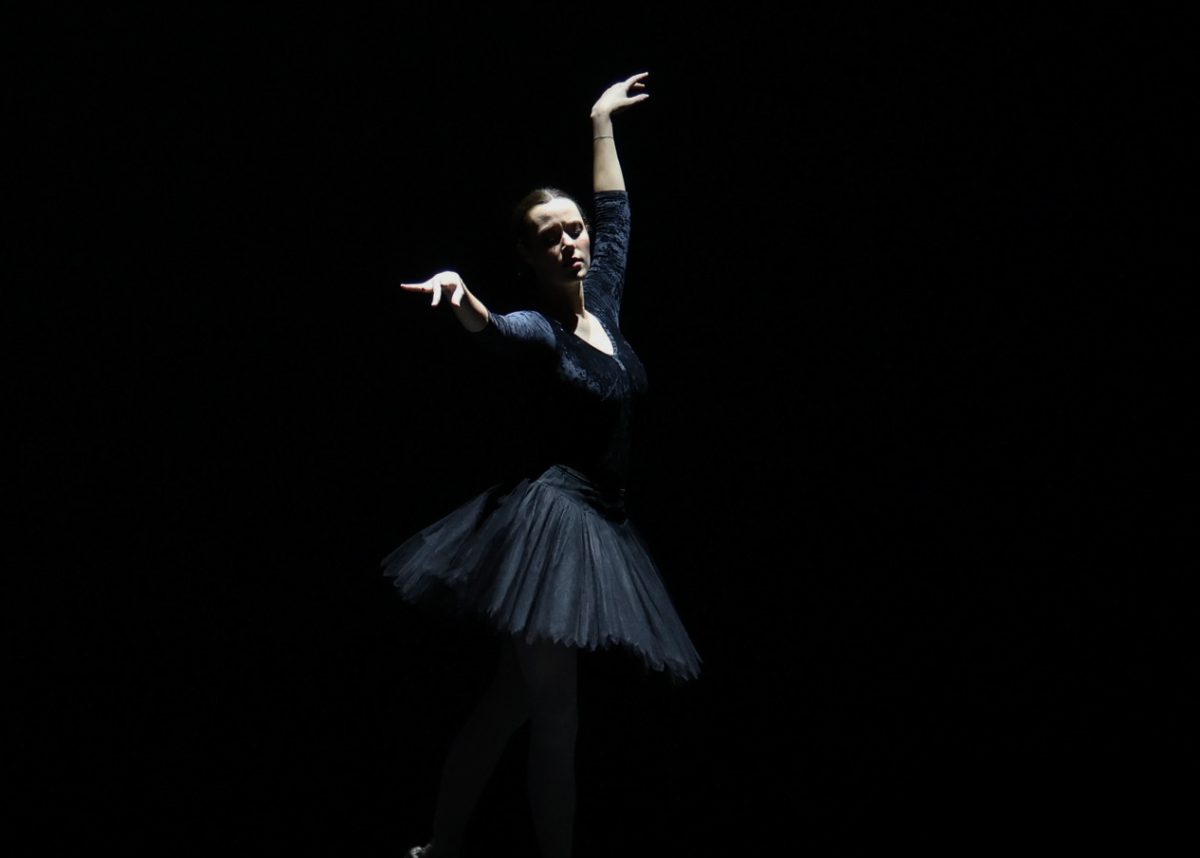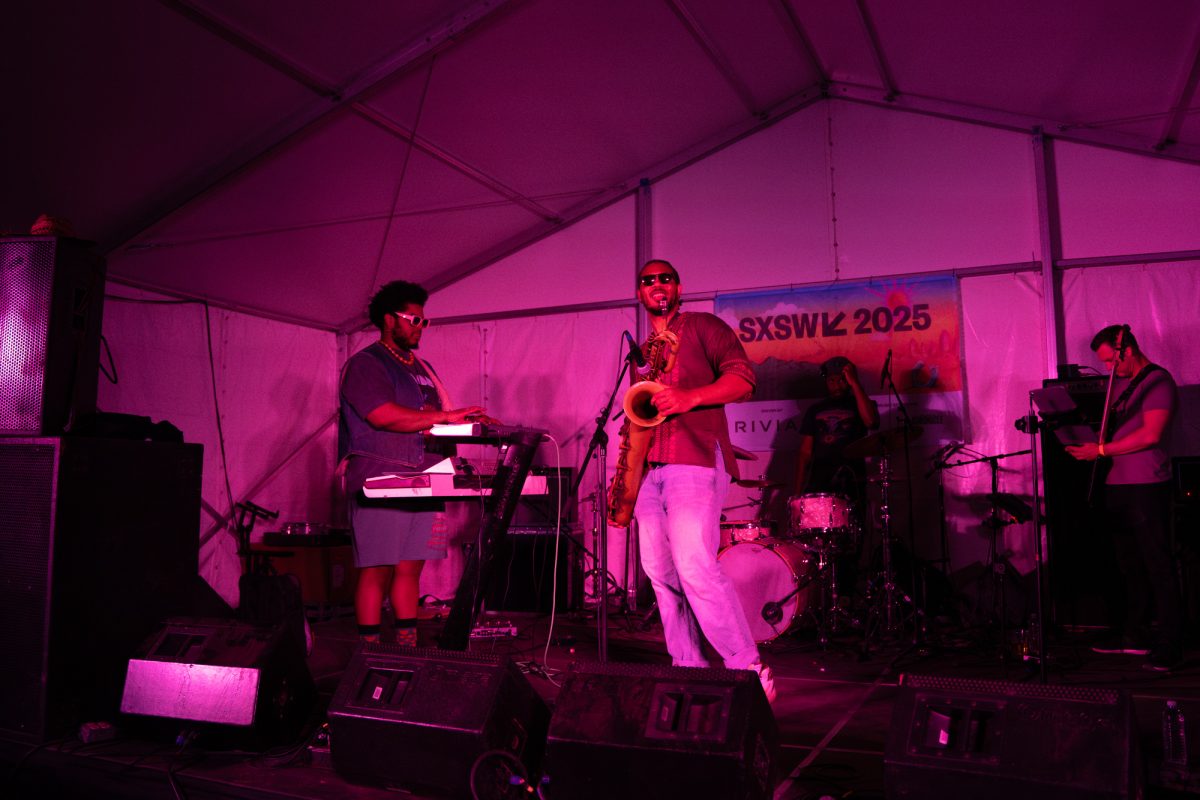In Mark Anthony Green’s directorial debut, which releases next Friday, “Opus” depicts a young journalist’s journey to the remote compound of superstar Alfred Moretti (John Malkovich, “Red”) and his cult of sycophants, the Levelists. Among a small group of inebriated reporters invited to Moretti’s estate, Ariel Ecton (Ayo Edebiri, “The Bear”) notices something decidedly off about the compound’s members who value creativity above all else. As art turns violent, Ariel must find an escape and tell her story.
Ariel passionately desires more from her journalistic career, but is stuck being adequate. Always overlooked, Ariel finally gets her chance at true celebrity reporting when a package from superstar Alfred Moretti arrives. Moretti remained in hiding for the last 30 years and chose a select few press to attend the listening of his new album before its release. When the press arrives at the compound, Ariel cannot shake the place’s uneasy feeling. Constant surveillance, weird scars, screams in the night and a cult-like hierarchy that reveres Moretti delves into something darker as the reporters begin to go missing one by one.
The intentional lighting that follows Ariel’s character and her patterned clothing standing out against the rest of her peers’ basic wardrobes emphasizes her character’s individuality. Despite having high aspirations her mannerisms felt awkward and her tone disrespectful. Her defiance leads to her survival, but her portrayal as “not like the others” seems forced. After the movie’s climax, Ariel still appears childlike and naive, as if the events did not greatly affect her. What could have been an interesting character development fell flat. Ariel’s awkward interactions with her peers inspired greater discomfort in the audience than the gory scenes.
Though labeled as a thriller/musical, Moretti’s music gets outshined by the thrill and drama of the plot. Acting as a music icon, the release of Moretti’s upcoming album ignites the movie’s events, but it soon gets lost. His character performs one grand musical number in which his genius and talent blend into true showmanship. Elsewise, he brilliantly resembles a stereotypical celebrity cultist leader.
In regards to the cinematography, Ariel says it best: “It just doesn’t feel right at all.” Mark Anthony Green ensures that the audience exists in a state of discomfort, however, he doesn’t always let those anxious moments breathe. Close up shots on ordinary activities turned violent create suspense throughout the movie, until it breaks and only gore remains.
“Opus” resides perfectly in the horror genre as it replicates many of its primary tropes. The film holds a striking resemblance to “The Menu” which also focuses on creative genius turned madness. A resigned artist gives it their all for one final show. This one just happens to run a cult too.
While well crafted artistically, the viewer will not find pleasure in their movie experience. The ending inspired questions encouraging the audience to doubt their world.
2.5 out of 5 Kool-Aids Drank














